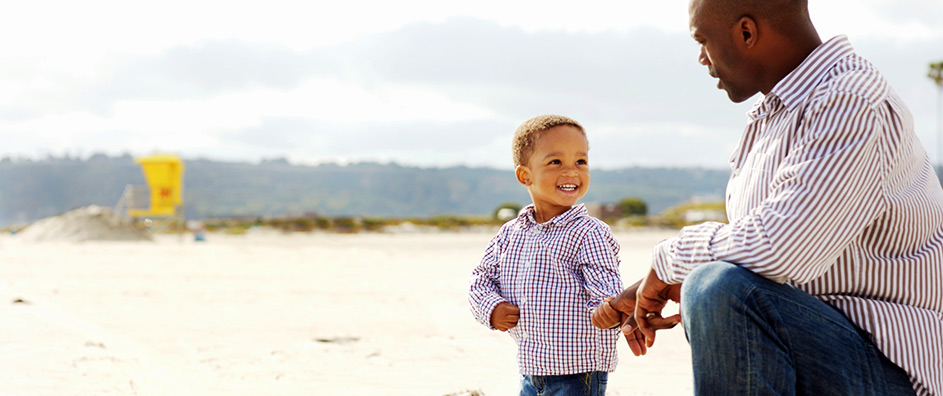The relationship between fathers and sons is one that has been explored through various cultural lenses, yet the Bahá’í perspective offers a distinctive approach. It combines spiritual understanding with practical guidance, elucidating how these connections influence both individual growth and societal harmony. At the heart of this framework lies the quest for solace—an aspiration not only for familial serenity but also for a deeper understanding of one’s identity and purpose within the wider tapestry of humanity.
To grasp the nuances of the father-son relationship as seen through the Bahá’í teachings, one must first appreciate the intrinsic value of family as a focal point of personal development. The Bahá’í Faith emphasizes the role of parental guidance in nurturing the potential of all children, positing that fathers play a pivotal role in shaping the character and emotional intelligence of their sons. However, the relationship is not merely hierarchical; rather, it is characterized by mutual respect and love. Fathers are called to be exemplars of virtues such as justice, compassion, and integrity while also encouraging their sons to cultivate these attributes.
One of the most profound aspects of this relationship is the recognition of the transformative power of listening. In Bahá’í teachings, effective communication is paramount. Fathers are encouraged to engender an environment where sons feel empowered to express their thoughts, fears, and aspirations without fear of reproach. This open dialogue not only deepens their bond but also facilitates the son’s journey toward self-discovery. The act of listening serves as a conduit for understanding, fostering a sense of solace in knowing that one’s feelings are validated and acknowledged.
Subsequently, this partnership often undergoes profound shifts as sons mature. Fathers may find that their sons’ insights and experiences challenge their preconceived notions. This is an opportunity for mutual growth. The Bahá’í teachings stress essential principles such as humility and lifelong learning. Fathers who embrace this shift, who are willing to re-evaluate their perspectives in light of their sons’ emerging viewpoints, exemplify the dynamism of parental love. This transformation also reflects a broader paradigm shift within the Bahá’í community, one that endorses a collaborative rather than authoritarian approach to leadership and guidance.
Furthermore, the search for solace extends beyond the immediate familial context. The Bahá’í doctrine posits that individual well-being is inextricably linked to collective progress. When fathers and sons nurture a strong, harmonious relationship, they contribute to a profound ripple effect—enhancing the community’s emotional and spiritual fabric. The Family, as a unit, becomes a microcosm of society, encapsulating the Bahá’í principle of oneness which underpins all human relationships. This shared pursuit of solace emerges as a collective endeavor, where the father-son dynamic serves as a model for other relationships, fostering understanding and empathy across diverse communities.
Moreover, the challenges inherent in father-son relationships can often catalyze personal evolution. Navigating conflict and differences can lead to a deeper comprehension of one another’s perspectives. In challenging moments, where misunderstandings may arise, the Bahá’í teachings encourage individuals to reflect upon the virtues of patience and forgiveness. These traits are integral for healing rifts, thus enabling fathers and sons to transition from discord to harmony. The process of confronting and resolving such issues not only fortifies their bond but also deepens their understanding of the human experience, propelling them both toward spiritual maturity.
In the quest for solace, cultural factors cannot be dismissed, as they shape expectations and paradigms around fatherhood and masculinity. The Bahá’í teachings advocate for an examination of the cultural narratives that inform these roles. Fathers are prompted to transcend traditional expectations that may inhibit emotional expressiveness, thus fostering a relationship in which vulnerability is welcomed. Sons benefit from witnessing this paradigm shift, realizing that emotional openness is not a sign of weakness but rather a profound demonstration of strength and authenticity.
The dynamics of the father-son relationship are also reflected in the broader pursuit of knowledge. Bahá’í teachings exalt the pursuit of truth, encouraging both fathers and sons to embark upon a lifelong journey of learning. This quest provides a fertile ground for shared exploration and discussion, thus enriching their relationship. Engaging in intellectual pursuits together—be it through reading, attending lectures, or participating in community service—serves to reinforce their connection while also contributing to their respective character formations.
In conclusion, the Bahá’í teachings illuminate the intricate tapestry woven by the relationships between fathers and sons, underscoring the potential for solace found within this unique bond. By prioritizing communication, respect, and vulnerability, individuals can foster connections that are not only resilient but also transformative. These teachings encourage fathers and sons alike to transcend their individual circumstances, striving for a deeper understanding of both self and community. In doing so, they contribute to a greater orchestration of harmony, reinforcing the belief that solace is not merely a personal pursuit but a universal aspiration shared by all.
